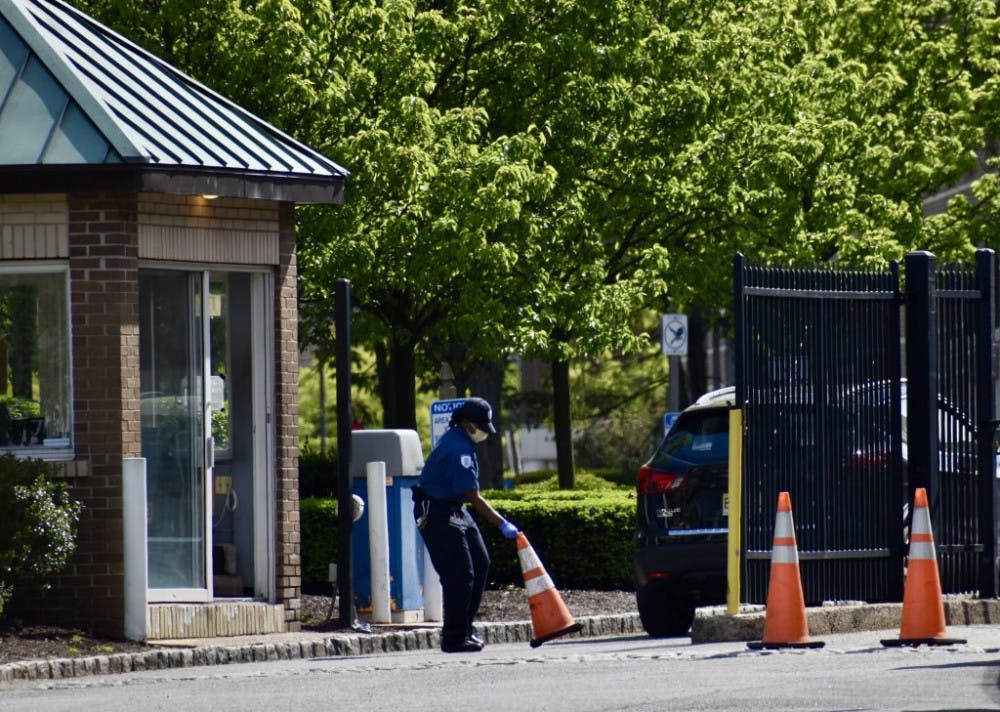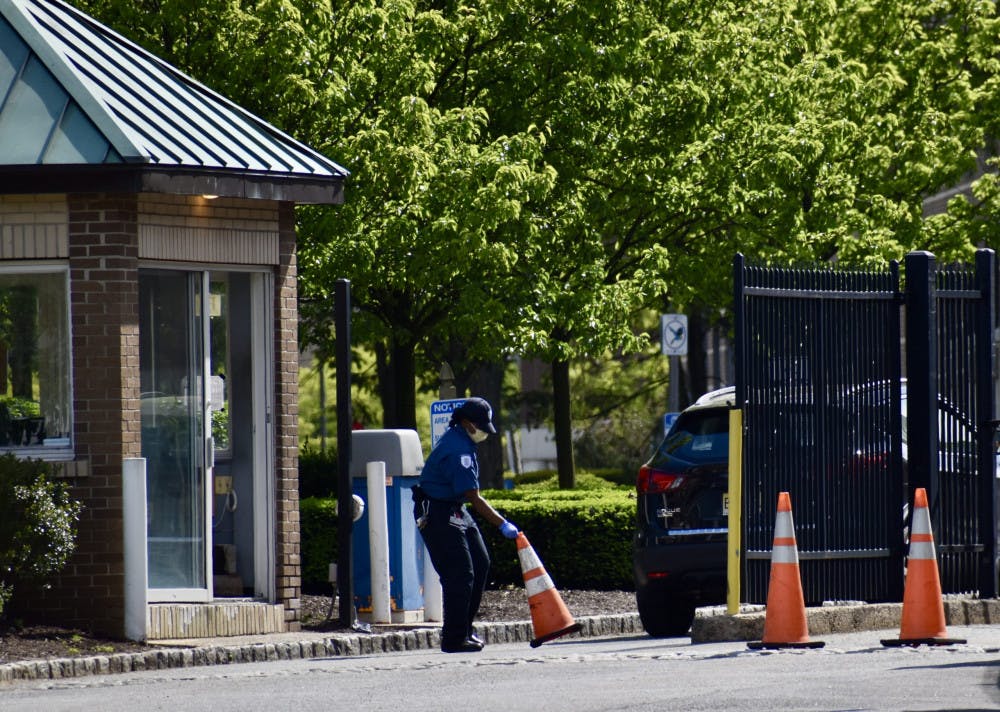
Seton Hall's 67-page restart plan was released on Tuesday after being submitted to the state of New Jersey and being obtained by The Setonian on Monday following an Open Public Record Act request. The document contained the most robust explanation of the University's plan to implement its Hybrid Flexible educational model yet, detailing how the University would operate in various different categories, including:
- Instructions and Classrooms
- Housing and residence life
- Quarantine housing
- Student Services and gatherings
- Visitors and guests
- Dining services
- Computer labs and libraries
- Transportation
- Research
- Study Abroad
- Athletics
- Compliance
The full plan can also be viewed below:
Instruction and Classrooms
Seton Hall announced its Hybrid Flexible or “HyFlex” plan for the fall semester in May. Under this system, students were given the choice to either continue their education remotely or attend classes in person.
According to the proposed plan, students who chose to take courses in person will be divided based on the last digit of their student ID, according to the document. Each section of the class will alternate attendance online and in class.
Each classroom will have signage outlining capacity as well as information on ideal seating arrangements for social distancing.
“All instructional spaces have been vetted and, when necessary, modified to determine maximum capacity in alignment with state guidelines,” the plan says. “Seton Hall facilities teams have developed layouts for each space to ensure compliance with social distancing requirements where applicable and practicable.”
Sanitation in classrooms will be maintained largely by students and professors.
“Disinfecting supplies will be maintained in the classrooms to manage sanitizing between classes. Faculty and students will be asked to wipe down their own surfaces and any other high touch surfaces at the start of each class.”
Classrooms will also be sanitized nightly using a sanitizing fogger.
Instructors will be separated from students by plexiglass, which has been installed on every podium. In most cases, professors will hold their office hours online.
“When in-person advising is necessary, such as for example group advising for special programs and/or academically at-risk students, it will be done in a location that allows compliance with social distancing regulations,” the plan says.
Housing and residence life
The elimination of triple dorms will reduce occupancy by 306 beds. Students living in triples were informed in June that they must find other living arrangements, so that residence hall density could be kept low.
This figure does not include the elimination of Ora Manor, as it was announced in June that Ora would serve as a quarantine dorm for sick students.
It is unclear whether the University now has more students seeking housing than beds, but the plan outlines plans to deal with such a problem.
“Housing and Residence Life will use the housing application system and work with the Dean of Students Office to identify students for whom residential housing is necessary for an equitable education,” the document says. “These students will be prioritized for housing.”
Life within residence halls will be different as well, as the University will limit the use of common areas and lounges.
“The University will develop and disseminate clear protocols that promote social distancing measures and mask-wearing within residential facilities and shared common spaces,” the plan says. “In addition, Seton Hall will reduce the capacity of shared spaces by removing furniture, monitoring the use of those spaces, and limiting gatherings of students.”
The University also plans to address bathroom hygiene, according to the document, which states that “the University will limit bathroom user density to 4-6 users per fixture.” The plan does not explain how this reduction in density will be implemented in South Boland Hall, where bathrooms are communal.
According to the plan, “the University will require residents to remove all personal items from shared bathrooms when they are not present.” It does not specify whether this is referring to suite-style or communal bathrooms.
Quarantine housing; what if I get sick?
The plan provides more details on the previously announced plan to use Ora Manor as quarantine housing. Quarantine housing, according to the document, will be provided to any student with COVID-19 symptoms, or a COVID-19 diagnosis, as well as “people identified as close contacts of a person who has COVID-19.”
This apparently means that students who have been exposed to COVID-19 or suspected COVID-19 cases will be quarantined in the same building as confirmed cases.
Ora Manor’s 104 bed occupancy is made up of two-, three-, and five-bedroom apartments. It is not clear how many people will be quarantined in a single apartment. The document does not explicitly state that those who have been exposed to COVID but do not test positive will not be asked to quarantine with sick COVID patients.
The plan also does not go into detail about meal delivery, or how students on campus will be transported safely to Ora Manor.
“A plan for remote learning and meal delivery has been developed to serve these students,” the plan says of the quarantined residents. “Public Safety and Security will utilize their services to transport sick students residing on campus to appropriate quarantine space and appointments to Health Services.”
The plan also does not discuss how the University might respond in the event that the number of confirmed or suspected cases on campus exceeds the occupancy of Ora Manor.
Student Services and gatherings
All student gatherings on campus will be held remotely whenever possible, according to the plan.
Any in person gatherings will be tightly controlled to maintain social distancing.
“Student Services will minimize both the number and size of gatherings and will ensure such gatherings are in compliance with state limits that are current at the time by using signage about maximum capacity and blocking areas off to limit the size of the gatherings,” the document explains.
Student Services will also hold advising appointments virtually whenever possible, including through Disability Support Services, Counseling and Psychological Services, Campus Ministry and the Division of Volunteer Efforts.
Departmentally supported student organizations will continue to meet virtually, but may meet in person if it is ‘preferable.’
“When videoconferencing or teleconferencing is not preferable or possible, student organizations can hold appointments in open, well-ventilated spaces (if possible) or spaces which ensure that individuals maintain 6 feet of distance between one another,” the plan says.
“Student Engagement will work with Public Safety to develop a protocol for managing gatherings of students.”
Visitors and guests
Visitors will be required to follow masking and social distancing rules on campus, the plan says.
The University plans to maintain “a log of all visitors” to facilitate contact tracing using a “front desk sign-in system.”
Non-university guests will not be allowed in residence halls under the plan.
Dining services
Dining services could be reimagined for the COVID era, with new technologies, facilities, and layouts outlined by the plan.
The University will provide Gourmet Dining Services (GDS) with masks and gloves.
In addition to new sanitary measures, the cafeteria will have limited capacity, with chairs and tables spread out to maintain social distancing, the plan explains.
While it is not clear what the maximum capacity of the cafeteria will be, all chairs will be placed six feet apart, with some tables using plexiglass dividers. Extra chairs have been removed from the cafeteria.
However, this change in density will force the dining hall to spread out.
Outside the cafeteria, outdoor dining spaces will be provided, with tents and tables.
Mobile ordering on an app with wait times listed will help prevent long lines which naturally
bunch together and make social distancing difficult.
GDS will also offer takeout and “grab-and-go” options, as they did at the beginning of the pandemic in March. Dining options on the South Orange campus will change as well.
“In order to spread customers out and provide more seating within the board plan dining area, the adjacent retail space will be utilized as part of board dining,” the plan says.
Jersey Mike’s will become a grill and beverage counter. Pizza will be served from the Pizzeria only, Pirate Express will be altered to provide smoothies, ‘Health and You’, bakery, and cereal options previously provided in other areas. The C-Store (Pirate Express) will move to the Living Room in place of Pirate Bowls, which will not be available this fall semester.
Dunkin’ Donuts, the Jubilee Café, and Pirate’s Cove will be open with their normal schedule.
Computer labs and libraries
Under the plan, computer labs will be closed for the semester, except for during supervised activities related to in-class instruction. Additional sanitation protocols will be taken in such cases.
“Computing facilities can be closed without impact to student learning and access to technology since all Seton Hall undergraduates receive a laptop with the same software configuration used in the computer labs,” the plan says.
The University decided in May to eliminate its mobile computing refresh program, which provided new laptops to students entering their junior year, but maintained the program for incoming freshmen.
Libraries will open with modified hours, and staff will routinely clean tables and other surfaces. Curbside pickup of materials will be available. Group study rooms will be closed.
Transportation
Under the plan, Public Safety will continue operating transportation services at reduced capacity, and with regular cleanings between shifts. It is unclear if this means both the SHUfly and SafeRide, as neither service is explicitly mentioned in the document.
Research
If the plan is approved, laboratories will reopen with modified scheduling. Wherever possible there will be only one researcher in a lab room at a time. Research-related meetings will be held remotely wherever possible.
Study abroad
The plan will extend the current suspension of study abroad programs through the fall 2020 and spring 2021 semesters. In the spring, considerations may begin for summer 2021 programs, according to the document.
Students will be able to go on third-party sponsored trips at their own risk, and will be required to quarantine for two weeks before returning to campus.
Athletics
Despite the restrictions on in-person student gatherings, athletic teams may be allowed to train together, pending implementation from the Department of Athletics and guidance from athletic conferences like the NCAA. Athletic facilities will follow state occupancy guidelines to limit attendance. Athletes will be screened for COVID-19 and may be removed from participation and asked to quarantine if appropriate.
Compliance
The Student Code of Conduct will be updated to reflect the expectations outlined in the new “Seton Hall Pledge,” meaning students who violate the pledge could be held accountable with “escalating sanctions for more egregious violations,” the plan says.
The pledge will be shared with local law enforcement.
More information on the IHS campus, the Newark law school campus, and college-by-college plans can be found in the full document.
Daniel O'Connor can be reached at daniel.oconnor1@student.shu.edu. Find him on Twitter can be reached @ItsDanOConnor.





